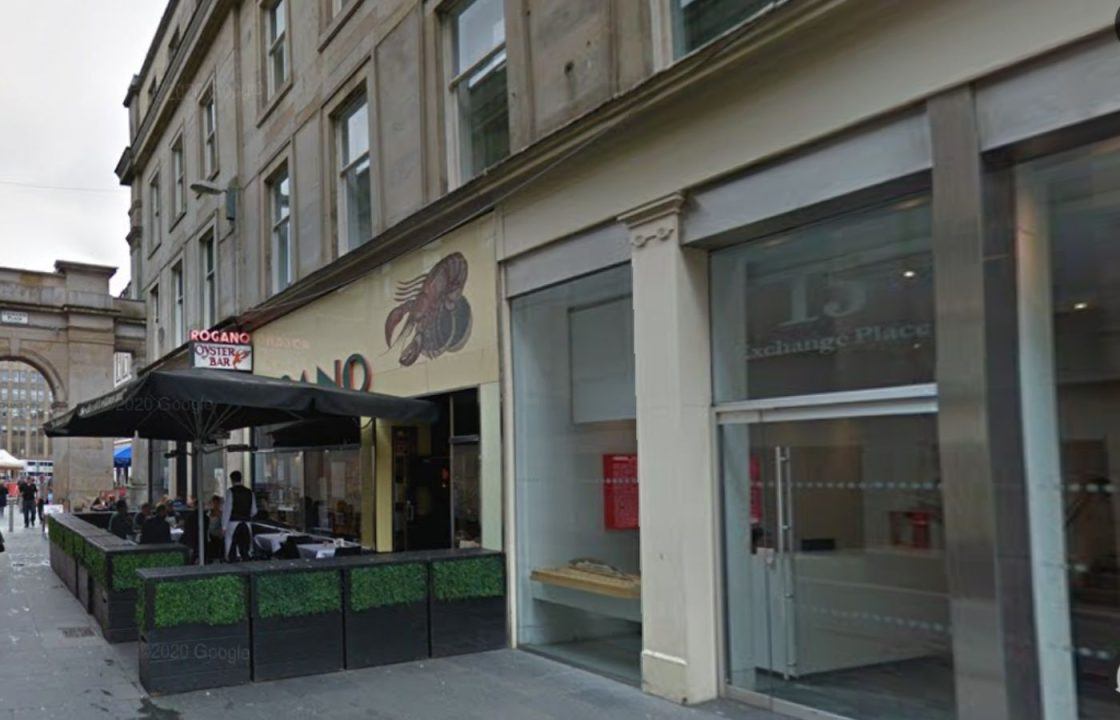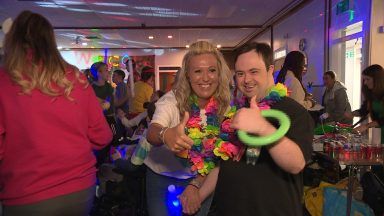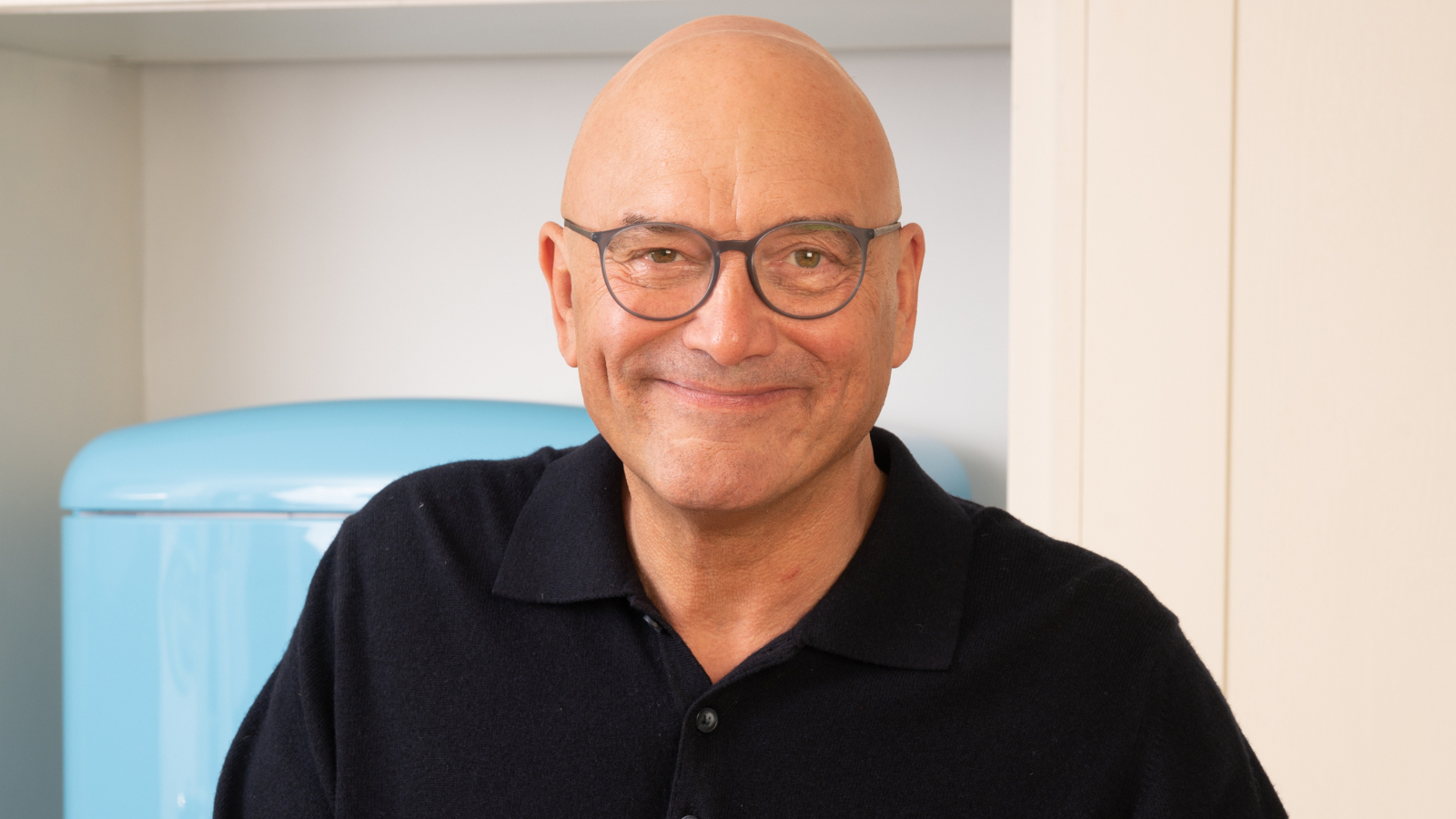The owners of a Glasgow restaurant frequented by A-list celebrities have suffered a setback in their legal bid against their landlord at Scotland’s highest civil court.
The company responsible for the Rogano eatery in the city’s Royal Exchange – Forthwell Ltd – instructed a top team of lawyers to go to the Court of Session.
The firm’s directors decided to take legal action over the circumstances surrounding Rogano’s closure in late 2020.
The restaurant was favoured by celebs like Rod Stewart, Jude Law, Mick Jagger, David Bowie, Elizabeth Taylor and Harvey Keitel but hasn’t been open since the pandemic.
It raised proceedings against the firm that acts as the Rogano’s landlord – Pontegadea UK Ltd.
Forthwell’s lawyers argued that flooding caused “substantial damage” to the business on three different occasions between December 9, 2020, and January 10, 2021.
They argued that the damage was caused by an “insured risk” and that Pontegadea breached its obligation to maintain the Rogano and allow it to trade.
Lawyers for Forthwell want a judge at the Court of Session to order Pontegadea to provide repairs at the premises to allow it to re-open.
They told judge Lord Braid that if they can’t obtain such an order, the firm would require damages of £789,000.
Lawyers for Pontegadea wanted the court to strike out Forthwell’s bid to recover £789,000. They told Lord Braid that it couldn’t seek damages in this respect as an insurance policy for the premises was in place. They argued that this meant Forthwell couldn’t sue.
Lord Braid rejected this submission and allowed the compensation claim to proceed along with the bid to force Pontegadea to provide repairs to the premises.
This decision prompted Pontegadea’s lawyers to Appeal to the Inner House of the Court of Session, the country’s highest civil appeal court.
Pontegadea’s lawyer Roddy Dunlop KC – the Dean of the Faculty of Advocates – told civil appeal judges that Forthwell was seeking additional compensation on behalf of its subsidiary Lynnet Leisure (Rogano) Ltd – the firm that operated the actual restaurant.
The compensation being sued for was to cover Lynnet Leisure’s losses due to its inability to operate the Rogano.
Mr Dunlop argued that contract law didn’t allow this. He told judges Lord Carloway, Lord Malcolm, and Lord Pentland that contract law only allows the parties directly involved in any commercial agreement to sue each other and recover cash. This meant that since Lynnet hadn’t signed the contract with Pontegadea, it couldn’t recover compensation from the business.
In a written judgement published on Thursday, the court upheld the submissions made to it by Mr Dunlop.
Lord Carloway, Scotland’s most senior judge, wrote: “Other than in well-known situations, such as agency or insurance, a contracting party cannot sue for damages suffered by a third party and, even if he could, there is no hitherto known obligation to account.
“It would be baffling if the subsidiary could then sue the licensors’ landlords, who were not even aware of the subsidiary’s existence.
“The court should sustain the defenders’ seventh plea-in-law. To that extent, the reclaiming motion should be allowed.”
The Rogano opened in the 1930s. Its art deco interior was inspired by the Queen Mary, the famous transatlantic cruise ship.
The restaurant became known as one of the most exclusive places in Glasgow to eat.
It was featured in an episode of Anthony Bourdain’s Parts Unknown where he shared oysters and lobster thermidor with comedian Janey Godley.
In the judgement published on Thursday, Lord Carloway described the Rogano as being “one of the oldest and most celebrated restaurants in Glasgow.”
Lord Malcolm dissented with his colleagues in the judgment.
He said he was in “agreement” with Lord Braid that there were precedents available which would allow Forthwell to sue on behalf of Lynnet.
Follow STV News on WhatsApp
Scan the QR code on your mobile device for all the latest news from around the country


 Google Maps
Google Maps




















